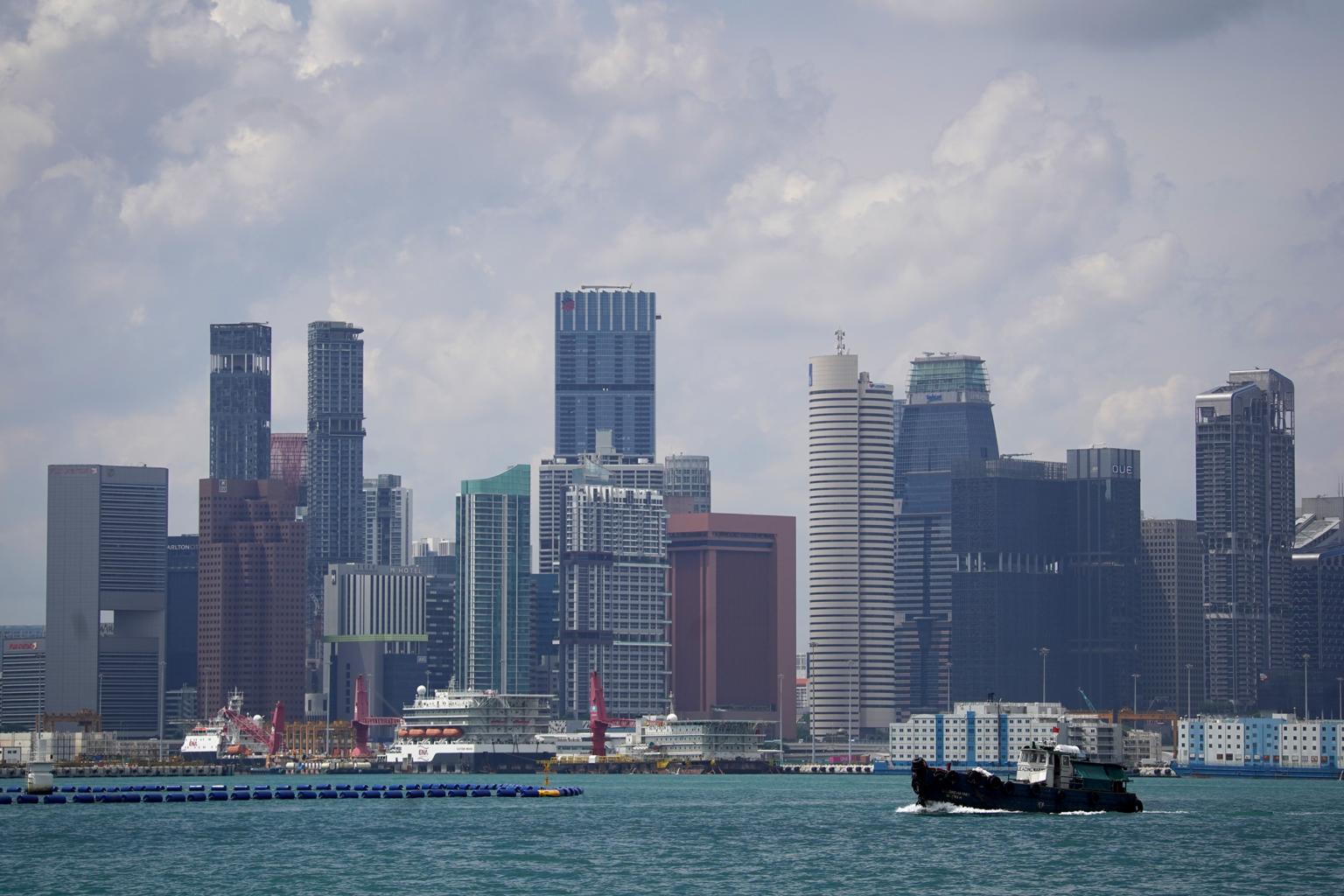Ministers flag need for Apec economies to keep supply chains open and work to reopen borders safely
Sign up now: Get ST's newsletters delivered to your inbox

The start of the pandemic saw many countries scrambling to procure much needed medical supplies as just-in-time supply chains collapsed.
ST PHOTO: JASON QUAH
Follow topic:
SINGAPORE - The Covid-19 pandemic has brought into sharp relief the challenges that countries face in the supply of food and other essentials, and it is critical that countries in the Asia-Pacific work together to strengthen supply chains and keep trade flowing, two Singapore ministers said.
Speaking at the Asia-Pacific Economic Cooperation (Apec) ministerial meeting held virtually on Monday (Nov 16) night, Second Minister for Foreign Affairs Maliki Osman said: "As few economies are self-sufficient in food, it is essential for Apec to work more closely together, and keep trade flowing during a crisis."
He added this will ensure "that we have a resilient food supply chain which can withstand future shocks, and is underpinned by an open, rules-based multilateral trading system."
Minister for Trade and Industry Chan Chun Sing, who was also at the meeting, spoke on the importance of Apec economies working together to support the region's economic recovery.
Mr Chan said in a Facebook post on Tuesday (Nov 17): "In these challenging times, it is especially vital for us to strengthen our supply chains, uphold connectivity between economies, keep markets open and foster greater regional cooperation. This will put us in a better position to seize opportunities beyond our shores and allow us to bounce back stronger from the crisis."
Their remarks at the meeting hosted by this year's Apec chairman Malaysia come amid a renewed commitment by ministers from the 21 Apec economies to advance regional trade and investment, and ahead of the Apec Economic Leaders' Meeting this Friday (Nov 20).
In a joint statement after their meeting, the Apec ministers said: "We are committed to working together to facilitate the movement of essential goods and services across borders and, without undermining efforts to prevent the spread of the virus, explore ways to facilitate the essential movement of people across borders."
The start of the pandemic saw many countries scrambling to procure much needed medical supplies as just-in-time supply chains collapsed with port and airport operations halted when countries went into lockdown to stem the spread of the virus.
Dr Maliki, in his remarks, said: "This has badly affected economies that are heavily dependent on exports, as well as the livelihoods of farmers and traders who could not sell their products, many of which were perishables. It also affects non-agricultural economies dependent on food imports for their people."
The meeting also discussed the challenges brought by the Covid-19 pandemic to the economy, health and society, and the joint statement acknowledged the disproportionate impact on small enterprises, women and other vulnerable groups.
Dr Maliki urged his counterparts to work together on stepping up the transformation of the digital economy and ensuring that all segments of society can benefit from it.
He also called on Apec economies to support vaccine multilateralism and the fair and equitable access to diagnostics, therapeutics and vaccines.
In the meantime, economies can explore how to reopen borders in a safe and calibrated manner, he added, noting that restoring confidence and the flow of people is essential for a full recovery of economies.
Singapore has worked to establish reciprocal green lanes with six countries - Brunei, China, Indonesia, Japan, Malaysia and South Korea - as well as an air travel bubble with Hong Kong.
Dr Maliki said relevant health protocols have been put in place to prevent the transmission of Covid-19, and if the model proves to work it could be a formula for establishing a wider network of travel which can help revive the hardest-hit aviation and tourism sectors.
"There is much we can do together to overcome this global crisis," he added.
"Apec can help lead a process towards a robust economic recovery and create a region that is more resilient to future shocks, so that future generations can benefit from the efforts we have made today."

